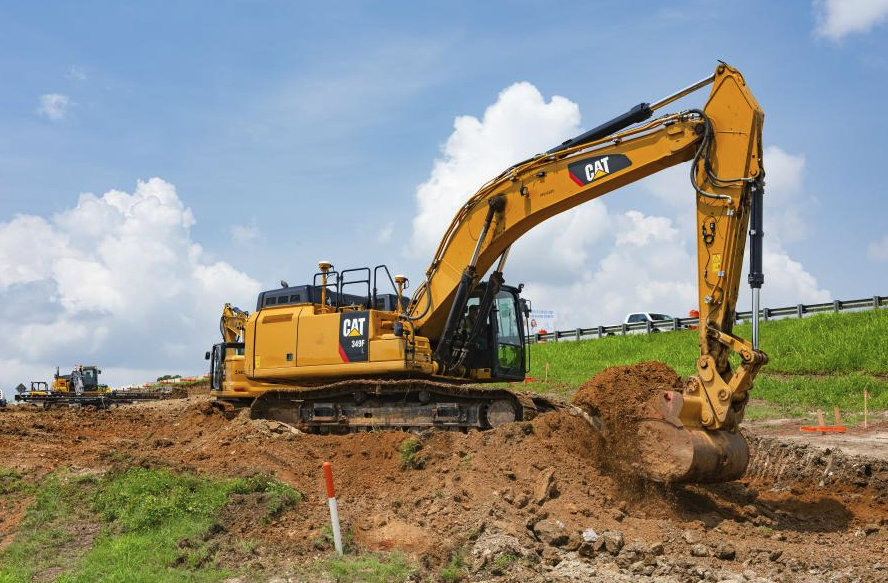Good Area Manager, Bad Area Manager

Tristan Wilson
TL;DR: Good area managers get stuff done the right way. Bad area managers: not so much.
I've been thinking about what separates the area managers who crush it from the ones who flame out. After watching dozens of them over the years - some who built legendary careers and others who couldn't manage a lemonade stand - the patterns are clear.
Most contractors organize by geography, work type, or market - call them divisions, areas, regions, whatever. Each unit owns their results, develops their own identity, and creates healthy internal competition. But the person running that area? That's where everything lives or dies.
The Ones Who Get It
Good area managers own everything. They meet or exceed their annual plan in profit and revenue because they understand the buck stops with them. No excuses, no finger-pointing, just results.
They know what's happening on every job because they "trust but verify" with their own eyes. They're not managing spreadsheets from their office - they're out there seeing the work, talking to the crews, understanding the real story behind the numbers.
When a good area manager calls their field managers, nobody makes that face - you know the one. The "Oh god, what does this #*%hole want now?" Instead, the phone rings and the superintendent grins: "What's up, boss?"
That's respect. And respect isn't given - it's earned.
When you are with them, you ask yourself.….. How the heck does she know all those crazy specific details about everything that’s going on with crews, owners, equipment, schedule, and jobs while the folks under her direction are motivated, empowered, and don’t feel micromanaged? That’s doing it right.
Good area managers listen. They actually hear what their people are telling them about field issues, personnel problems, and operational challenges. They say please and thank you. They laugh at jokes. They buy lunch at roadside diners. They're the kind of person you'd want your kids to work for.
The Ones Who Don't
Bad area managers always miss their plan. But they've got explanations for everything:
"The jobs were fading before I took over."
"We're short-handed because we don't pay enough."
"Our PMs are inexperienced."
"Competition is brutal."
"I told them to do it."
Sound familiar?
Bad area managers don't understand this is a people business. Everyone can see through their BS like a pink flamingo in the mud - they're driven by personal ambition, not team success.
They procrastinate on the hard stuff and overreact to small problems. They get dragged down rabbit holes instead of focusing on what matters. You find yourself constantly asking them: "Where are we at on this?"
They're exhausting to deal with whether you're an owner, subcontractor, employee, or even the person sitting next to them on a flight.
What Excellence Looks Like
The best area managers I've known share specific traits:
They hold people accountable to high standards. Not through fear or micromanagement, but through clear expectations and consistent follow-through.
They delegate more than seems normal. They understand their job isn't to do everything - it's to ensure everything gets done right.
They celebrate wins publicly and address problems privately. Recognition is loud, correction is quiet.
They're closers. When problems arise - and they will - good division managers handle them fast. Employee complaints, safety incidents, subcontractors in default, angry owners, failed material tests, stalled change order negotiations. They don't let issues pile up because they're worried about being right or they don't like confrontation.
Think Mariano Rivera in the bottom of the ninth. Cool, composed, focused on getting the job done. Closers.
They see the bigger picture. The best area managers understand they're part of something larger. They share crews, equipment, and resources with other areas when it makes business sense. Their success lifts everyone.
The System That Works
Here's what the best area managers do consistently:
Daily Habits
- Practice extreme ownership
- Review and comment on job cost reports (daily P&L)
- Check plant/material/trucking reports
- Review safety and quality reports
- Look at every bid going out the door
- Talk to every direct report
- Respond to emails, texts, and calls promptly
Weekly Habits
- Plan the following week in advance (on Friday or Sunday, not Monday)
- Hold team meetings covering safety, costs, schedules, and equipment
- Spend at least 4 hours in the field across job sites and plants
- Conduct 1:1s where the other person does most of the talking
- Work on recruiting
- Share interesting articles with the team
- Ask for feedback: "What can I do to better support you?"
Monthly Habits
- Visit every crew and shake every hand (including night work)
- Run employee appreciation programs
- Check out competitors' work
- Deep dive on job cost reports and cost-to-complete forecasts
- Write updates for senior management highlighting wins and challenges
- Host book club meetings
Quarterly Habits
- Organize team outings
- Meet face-to-face with key owners, subs, and suppliers
- Run employee satisfaction surveys
- Review career development plans
- Take real vacation and encourage others to do the same
Annual Habits
- Hit the plan
- Grow people
What's Actually Overrated
Here's what doesn't predict area manager success:
- Education and technical degrees (sorry, it’s true)
- Spreadsheet pivot table skills
- Years of experience
Character, work ethic, and people skills matter more than credentials.
The Bottom Line
Area management isn't about having all the answers. It's about building systems that work, developing people who can execute, and creating a culture where everyone wants to win.
The good ones make it look easy because they've put in the work to build something sustainable. The bad ones are always in crisis mode because they never invested in the fundamentals.
Which type are you building?
Thanks for reading this week. If this resonated with you, forward it to someone who could benefit from reading it. Leave a rating below, we value your feedback!

.avif)

.avif)


.svg)


